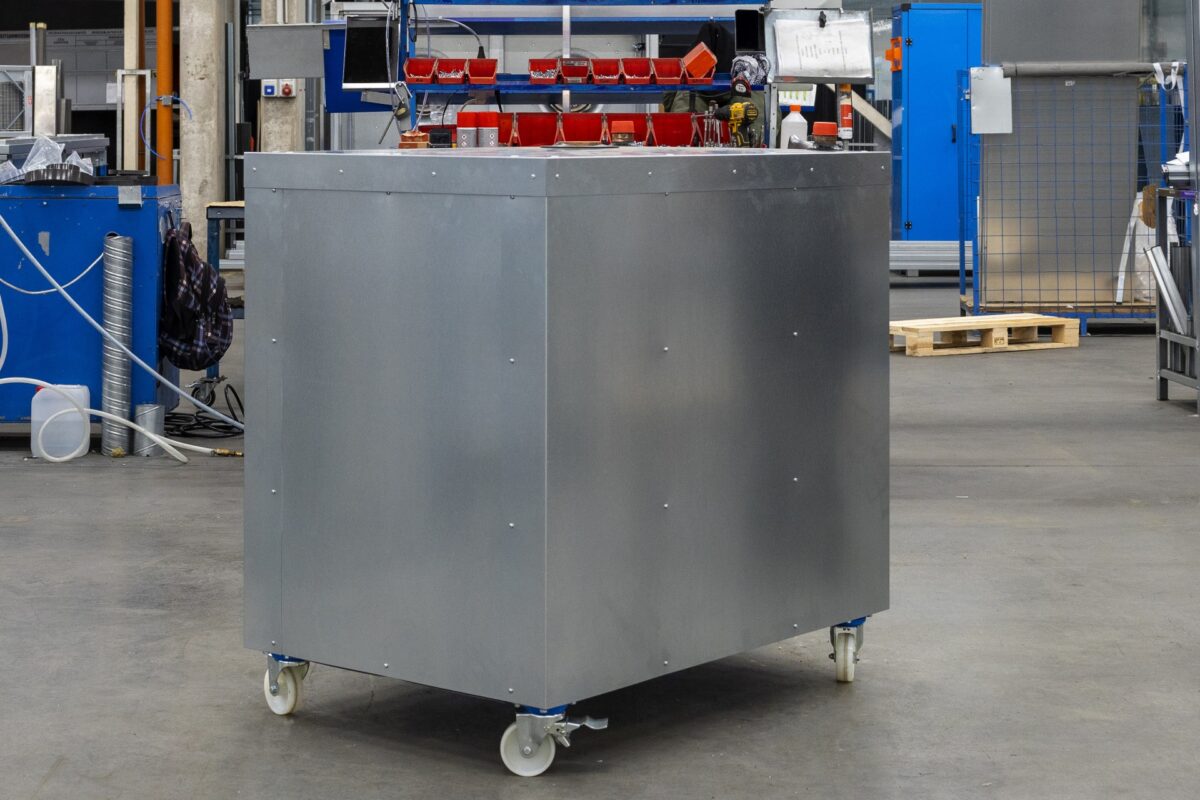Hungary-based Heatventors Ltd. has developed a non-flammable thermal energy storage system that can reportedly save up to 90% of space compared to traditional storage technologies or water tanks.
“Our thermal battery can store energy with a high energy density of 30 kWh/m3,” the company's Country Manager in Germany, Christoph Thomas, told pv magazine. “It can be integrated into the cooling and heating system of any building where a liquid circulates in the system, ideal for high-energy-consuming buildings like hotels, data centers, commercial spaces, medical facilities, and offices. It's also applicable to various processes like wine cooling, cosmetic production, and the cooling of processing machines and furnaces.”
According to the manufacturer, the thermal battery can also be used in combination with a PV system, as it can store the excess energy generated by the solar panels and use it when it is needed the most. “Another advantage is that, even with PV, we can continuously maintain the desired temperature.”
The system is based on an unspecified type of phase change material (PCM). PCMs can absorb, store, and release large amounts of latent heat over defined temperature ranges. They have often been used at the research level for PV module cooling and the storage of heat. The battery can reportedly store energy between -30 C and 120 C for a long period with only 1-2% of energy loss per day.
Heatventors is offering the system with capacities of 10 kWh, 30 kWh, and 60 kWh. It can be installed indoors and outdoors and be “easily” connected to any liquid-based cooling and heating system. “It can be connected to any system if the end use is cooling or heating, and there is an energy converter that converts the electrical energy,” Thomas explained.
The company also claims that the system has an expected service life of over 10,000 cycles. “Our battery can ensure considerable energy savings through a proprietary control system,” Thomas added. “It reduces consumption peaks, operates energy producers with optimal partial load, reducing maintenance costs.”
He also explained that the company is currently working on a new 1.2 MWh version of the system. “The modular structure of our solution ensures that all capacity needs can be met,” he stated.
“Pricing largely depends on the system requirements, but experience shows that the return on investment is approximately 3-6 years, depending on energy prices,” Thomas concluded. “Currently, we have over 40 installed batteries worldwide in countries such as Hungary, Portugal, France, Spain, Italy, and Oman. Our main clients are large-area buildings, such as offices, hotels, shopping malls, factories, data centers, and any facility with significant cooling and heating needs.”
This content is protected by copyright and may not be reused. If you want to cooperate with us and would like to reuse some of our content, please contact: editors@pv-magazine.com.




1 comment
By submitting this form you agree to pv magazine using your data for the purposes of publishing your comment.
Your personal data will only be disclosed or otherwise transmitted to third parties for the purposes of spam filtering or if this is necessary for technical maintenance of the website. Any other transfer to third parties will not take place unless this is justified on the basis of applicable data protection regulations or if pv magazine is legally obliged to do so.
You may revoke this consent at any time with effect for the future, in which case your personal data will be deleted immediately. Otherwise, your data will be deleted if pv magazine has processed your request or the purpose of data storage is fulfilled.
Further information on data privacy can be found in our Data Protection Policy.